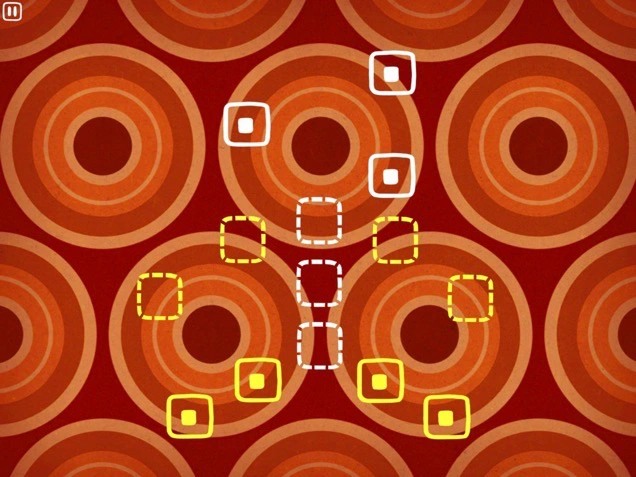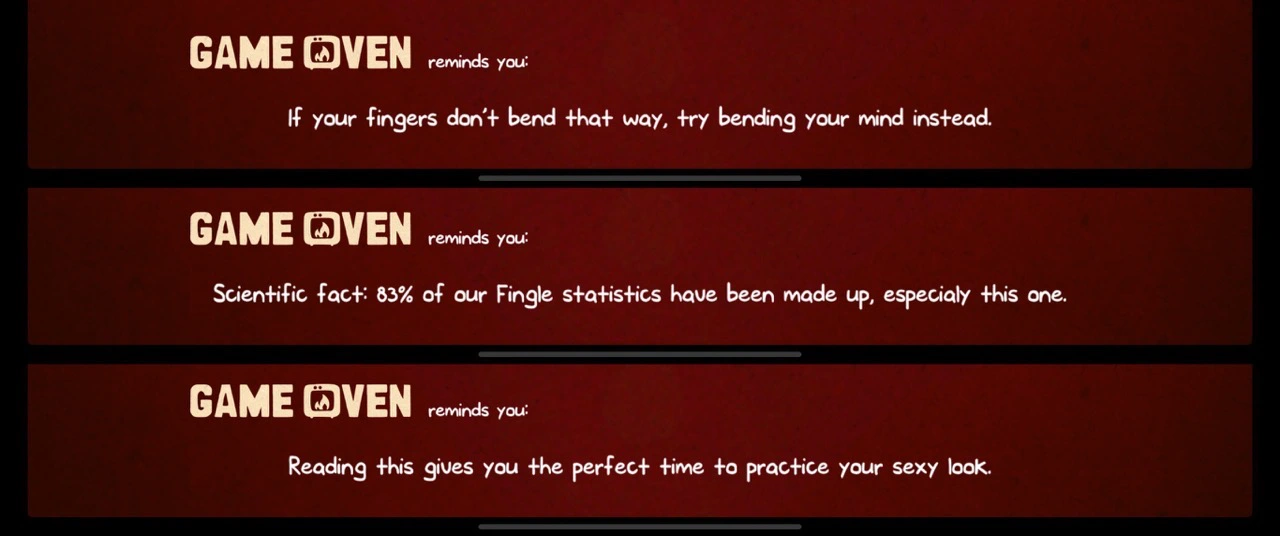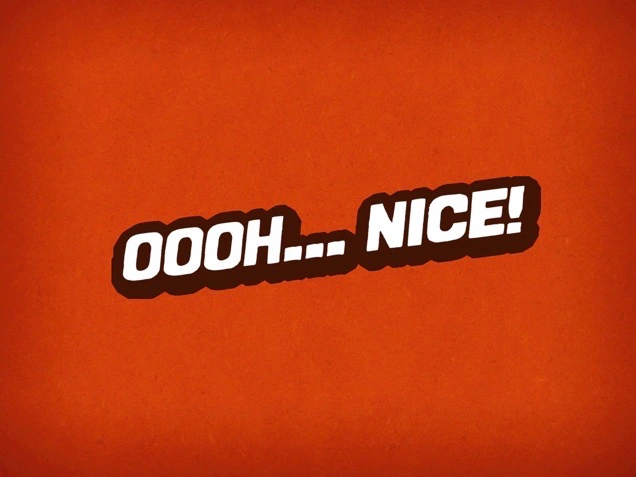by Dan McAlister
Fingle is a tablet game that reaches out of the device to make you uncomfortable.
Available: iPad
What Is It?
The easy comparison is Twister, a party game about tangled bodies. Players take turns maneuvering their hands and feet to randomly assigned positions that tangle players up amongst themselves. Twister was invented in the 60s, and has been delightfully inappropriate for decades. But now we have computers, smartphones, tablets. Can this new-age technology also be used innapropriately? Enter Fingle.

Each level of Fingle contains two sets of target icons, one for each player. The goal of the game is for each player to keep their fingertips touching all of their targets; if you maintain that contact for several seconds, you’ll advance to the next level. While Twister is concluded with the players’ inevitable failure, progression through Fingle is predicated on the players’ cooperation and success.
There are three complicating factors:
- The targets intermingle, so your fingers will often be interlaced.
- The targets move. Your fingers, and those of the other player, will touch, collide, stroke.
- The game is very suggestive.
Why I Love It.
Fingle has an opinionated, inappropriate presence that most games lack, and it starts with the aesthetic. Fingle goes in hard on a sultry, unconcerned 70s vibe. The game’s backgrounds are warm geometrics, overlapping circles and angular patterns. The oranges and yellows are textured, evoking shag carpet or old construction paper, dappled and crinkled with time. The instrumentation is sparse, repetitive, and feels very human. The strumming bass and heartbeat cowbells are imperfect, like gutsy amateurs at an open-mic. Modern music repeats because sound loops are optimized and purpose-driven; when this music repeats, it sounds like an amateur band limited by repertoire, buoyed on swagger rather than skillful play. It’s fabulous.
Fingle’s personality is amplified by the way it’s play escapes the confines of your device. Most digital games center actions taken within the screen. Mario leaps and Pac-Man chomps, all at the press of a button or nudge of an arcade stick. These games allow players to inhabit digital bodies and play out fantasies of being someone else for a while. Fingle, like other physical movement games (Twister, Just Dance, etc.) creates its play in real space, forcing the players to be more aware of themselves, not less. Fingle’s game space is the table or carpet you’ve set your device on, and it turns its attention on your clumsy, real self. And have I mentioned that Fingle has an inappropriate personality?
While Twister may create tension amongst players by putting them in awkward positions, Fingle does the same while commenting, suggesting, coloring the experience. Twister maintains a thin layer of deniability. “It’s just colored dots and wholesome fun,” it pleads, in the strained voice of a people-pleaser. Fingle makes subtext explicit and colored. It says “SWEET RUBBIN’” when you beat a level.

By being commanding, suggestive, and overt, Fingle leaves the iPad and controls the space around it. It’s digital Twister with flirty cheering and a disregard for pretense. I love it.
Your First Game.
Fingle is not a trust-building game. This is a game that centers physical contact with you and another person. This contact is limited to the hands, and can be interpreted differently based on your relationship. It can be funny and absurd, it can be suggestive and sexual. This is a game that should be played by people who already trust each other and are open with each other. Ensure you and your player 2 know what the game is, and set expectations for beginning and ending play.
Going Further.
Have fun with it! Pull it out at parties, or on a date night. Play without talking. Play it in private and public spaces, see how that changes the experience. It has some holiday themed levels, so space your Fingle-ing throughout the year. Or, don’t. Fingle may be loud and opinionated, but you can’t let it tell you want to do about everything. Fingle it out for yourself.

The opinions in this post are expressly the views of the author and do not reflect the views of their employer(s) or any entities that they might otherwise be affiliated.